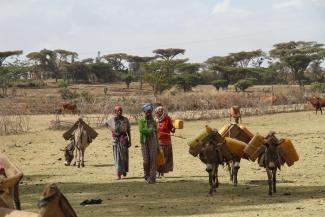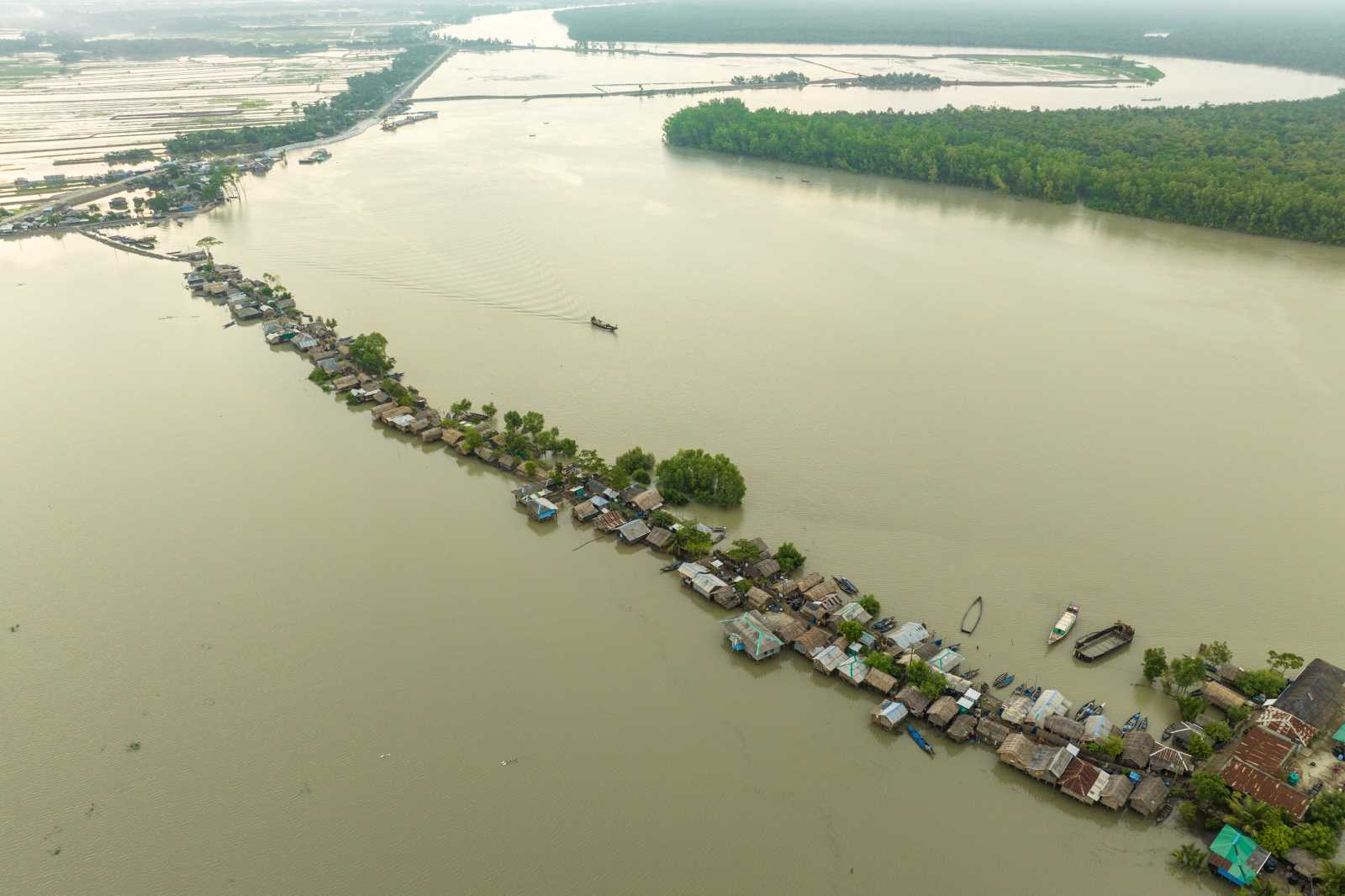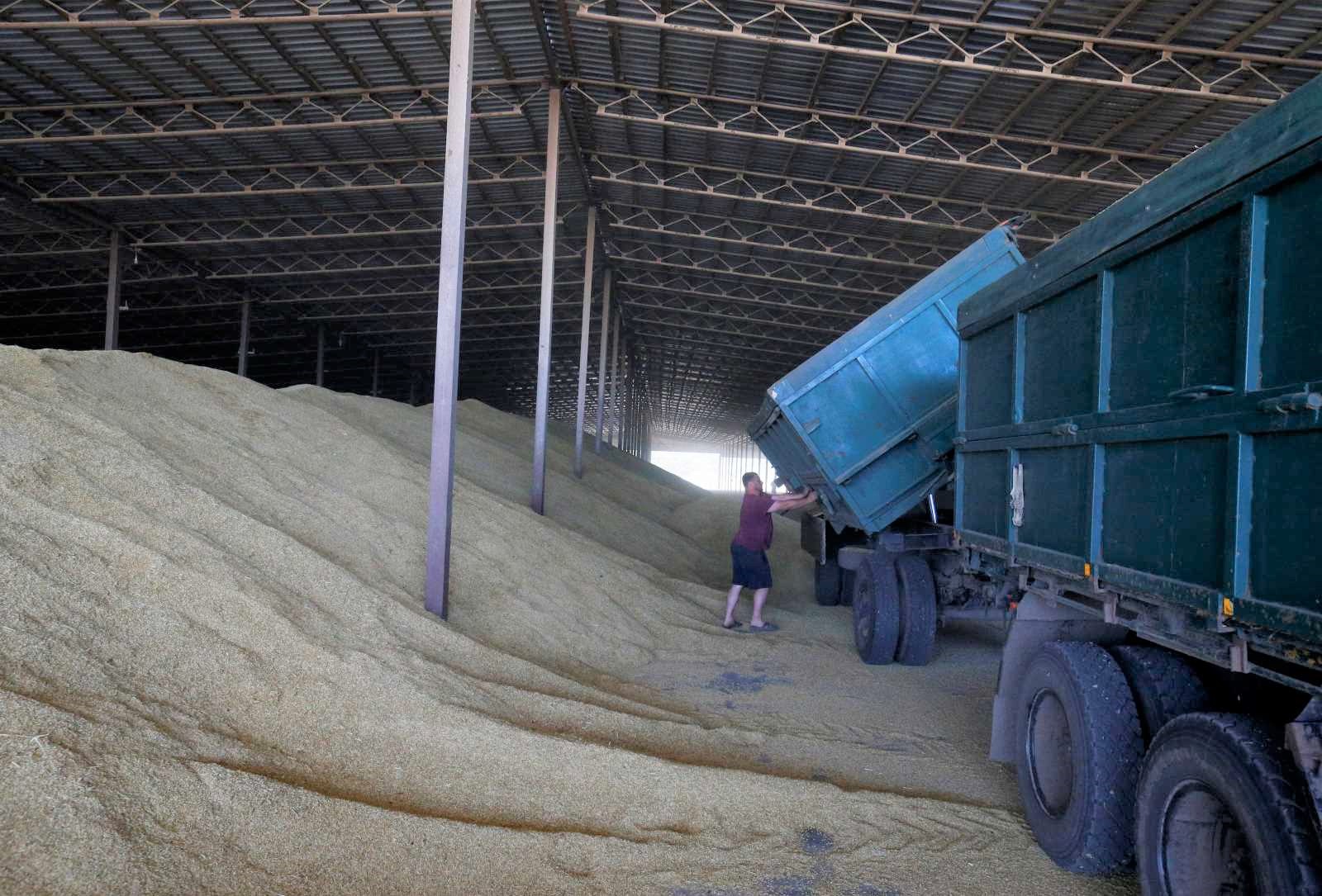UN prognosis
The climate crisis is exacerbating water stress

Sanitation services and hygiene require an adequate supply of clean and accessible water. Safe drinking water is essential for food security and health. Energy production, economic activity and ecosystems need water too. A current UN report therefore warns that climate change will alter the availability, quality and quantity of water.
The authors predict that the tropics will be particularly impacted – in other words, primarily low- and middle-income countries. However, Europe, the Caucasus and Central Asia will also receive less rain in the future.
According to the scientists, the greenhouse effect is making itself felt through the increasing frequency and magnitude of extreme weather events like heat waves, droughts, extreme rainfall, thunderstorms and storm surges. Higher water temperatures and water pollution due to droughts or flooding impact water quality.
The report shows that extreme weather also poses a risk for sanitary facilities and hygiene. After flooding, damaged sanitation and wastewater systems often lead to the spread of faeces and viruses and increase the risk to health. Droughts and flooding also cause malnourishment due to food shortages.
The study explains that the economy and electricity production are negatively affected by water stress, which is being exacerbated by climate change. Power stations and plants could be shut down. That, in turn, would have consequences for supply chains as well as for facilities and equipment.
Ecosystems like forests and wetlands are also at risk. The authors warn of biodiversity loss and also caution that humanity will not be able to depend as much on ecosystem services like water purification or flood protection in the future.
In order to reduce these risks, the scientists recommend the development of strategies to adapt to and mitigate the effects of climate change. Adaptation measures include:
- better water storage and drainage systems,
- early warning systems in the event of imminent hazardous weather,
- awareness and education,
- conservation agriculture,
- cultivation of flood- and drought-resistant crop varieties.
Meanwhile, agricultural practices that capture CO2, together with reforestation, are contributing to climate protection. Modern wastewater treatment could reduce greenhouse-gas emissions and supply biogas as a renewable energy source.
Given that climate-driven water problems impact society and the economy as a whole, the scientists recommend that more funding be made available for sustainable water management. Positive side effects would include job creation, improved health, less poverty and more secure livelihoods. Gender equality would be promoted as well, since women are generally responsible not only for collecting water, but also for their families’ health and hygiene in their households.
At the same time, it is important to consider conflicts of interest and actively involve all relevant groups in shaping water policy. The UN report recommends participatory, multi-stakeholder approaches.
The authors emphasise that many of the Sustainable Development Goals (SDGs) are related to water. The climate crisis could therefore jeopardise the entire agenda. From the UN’s perspective, decisive action is urgently needed.
Source
United Nations World Water Development Report 2020:
https://en.unesco.org/themes/water-security/wwap/wwdr/2020











